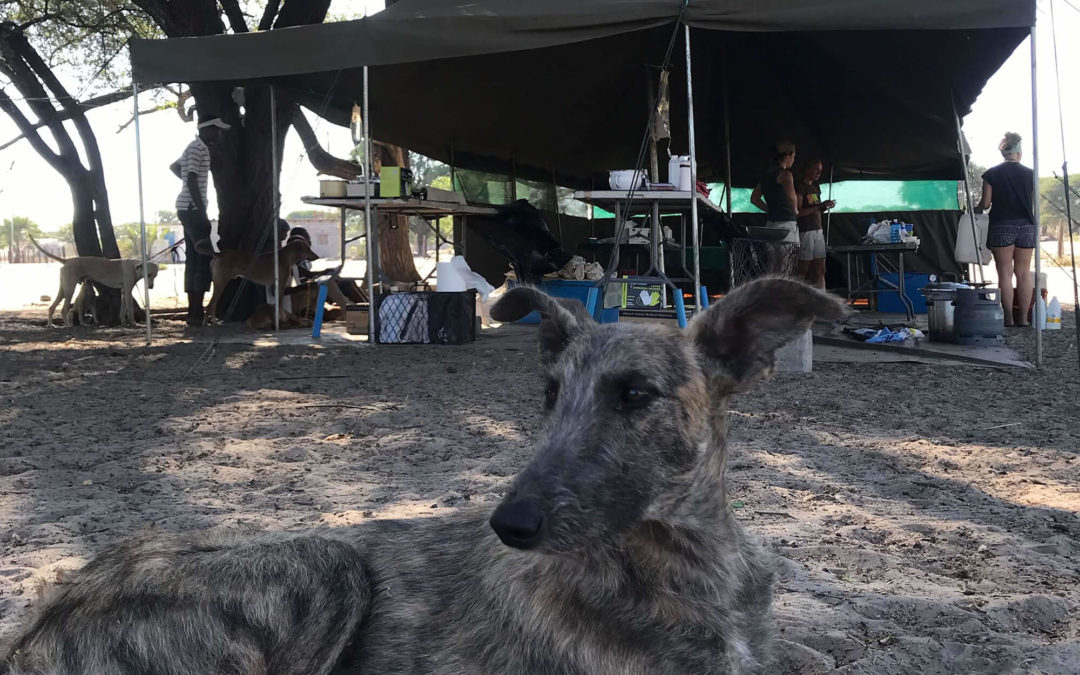Vetting in Botswana
I’m often amazed by what our clients get up to, and the stories I hear about their lives. One great example is the work of a Wadhurst client with a charity called Maun Animal Welfare Society. MAWS works in Botswana to improve the lives of local dogs by neutering, vaccinating, worming and treating them for infectious disease. Botswana is at the front line of conservation, and Maun sits on the edge of the Okavango Delta, a huge flood plan with incredible biodiversity. Domestic dogs threaten wildlife, not just by hunting for food but also by transmitting diseases such as Rabies (transmissible to all warm- blooded animals) and Canine Distemper (which can devastate lions), so that improving their health and controlling their number has a wider benefit to the environment and people.
That wonderful client challenged me to get involved and so in December I visited Maun for 2 weeks to work with MAWS. The work of the charity is organised by a UK Vet Nurse (another example of how Vet Nurse skills change the world) and most of my time was spent in her clinic.
Most of our workload was neutering (spaying and castrating) dogs, and although the operations were the same as I’ve been doing for nearly 18 years, the patients and environment were very different. Our typical operating morning for a Culverden vet might have one dog spay, typically a healthy, 6-month old, well-nourished, clean dog, treated against parasites and carefully examined before surgery. At MAWS it was not unusual to spay eight dogs a day. My patients were very varied, from elderly females, old characters that had had many litters, to puppies 3 or 4 months old. Some were relatively fit, but many were thin, often with spectacular parasitic disease – so many ticks and worms! Most had what we would consider life threatening infections with a blood parasite “tick fever” which meant that they were anaemic and had problems clotting their blood, so it was not unusual to stitch up an abdomen filling up with blood, something that would never happen in Culverden.
We also worked in the bush on “outreach”, in a tiny village called Habu, where the Chief was working with NGO’s to improve the environment and encourage tourism. Part of preparing for this was controlling local livestock and dogs. We set up our clinic under an awning next to the village assembly field, with two theatre tables, prep and recovery area and (not quite to our design) points from which local people, especially children, could watch what we did. The heat was incredible and many of the dogs in very poor condition, but we worked our way through the dogs that local people brought us.
I learnt a lot in Botswana and MAWS, and not just to appreciate the working environment in Wadhurst, Crowborough and Tunbridge Wells. The clinical challenge was huge, with more anaesthetic near-misses in one week than in years working in the UK. But despite that, we lost none of the 80 odd dogs we neutered. The team at MAWS was amazing, especially our Batswana nursing assistants, who’s efficiency and organisation was inspiring. It was only the over-heated, under-hydrated volunteer vets like me held them back! And finally, the dogs, such wonderful dogs, none of them aggressive, all of them responding to the gentle kindness that vets and vet nurses everywhere know works so well.
If you’re looking for an animal charity to support, then MAWS is well worth considering.
www.maunanimalwelfare.com


Recent Comments